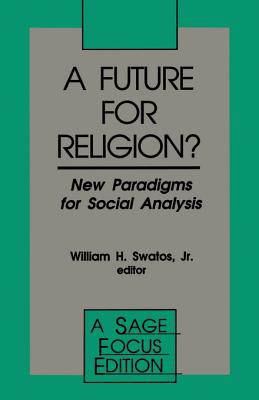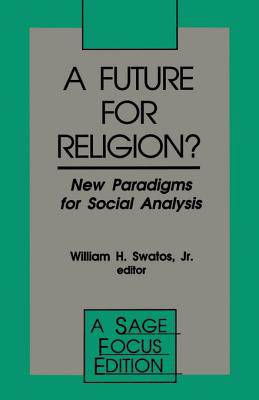
- Afhalen na 1 uur in een winkel met voorraad
- Gratis thuislevering in België vanaf € 30
- Ruim aanbod met 7 miljoen producten
- Afhalen na 1 uur in een winkel met voorraad
- Gratis thuislevering in België vanaf € 30
- Ruim aanbod met 7 miljoen producten
Zoeken
Omschrijving
The editor has shown clearly the new dimensions in sociology of religion which the classical schools neglected as personal and private concerns and which do not fit into the positivistic approach to the study of religion. This book introduces new pardigms in the study of sociology of religion to be developed in the context of new religious movements.... This book is a valuable addition to the fields of sociology of religion and new social movements. --Economic and Political Weekly From the evangelical and charismatic Christianity to the growth of Islamic fundamentalism, society today is witnessing an explosion of religious activity and revival. Yet, since the 1960s, sociologists have been proclaiming that religion has been in its death throes. Can such dynamic religious forces be at work if religion is dying? What is happening? And what do we expect to happen to religion in the coming decades? In A Future for Religion?, a leading team of scholars responds to these questions and offers a glimpse of where religion is heading. In their analyses, the authors explore several areas traditionally excluded from sociology of religion texts: religious experience, emotional renewal, religion and the body, comparative analyses, the links between religion and politics, social movements, and immigration. Each chapter summarizes a particular direction, provides data from current research, and offers an agenda for future research. Written in an accessible, inviting style, A Future for Religion? is ideally suited to courses in the sociology of religion. "This is a useful and sometimes very interesting handbook....It combines theory and practical sense in good measure." --Seminar
Specificaties
Betrokkenen
- Auteur(s):
- Uitgeverij:
Inhoud
- Aantal bladzijden:
- 214
- Taal:
- Engels
- Reeks:
- Reeksnummer:
- nr. 151
Eigenschappen
- Productcode (EAN):
- 9780803946767
- Verschijningsdatum:
- 1/11/1992
- Uitvoering:
- Paperback
- Formaat:
- Trade paperback (VS)
- Afmetingen:
- 141 mm x 217 mm
- Gewicht:
- 303 g

Alleen bij Standaard Boekhandel
+ 476 punten op je klantenkaart van Standaard Boekhandel
Beoordelingen
We publiceren alleen reviews die voldoen aan de voorwaarden voor reviews. Bekijk onze voorwaarden voor reviews.







